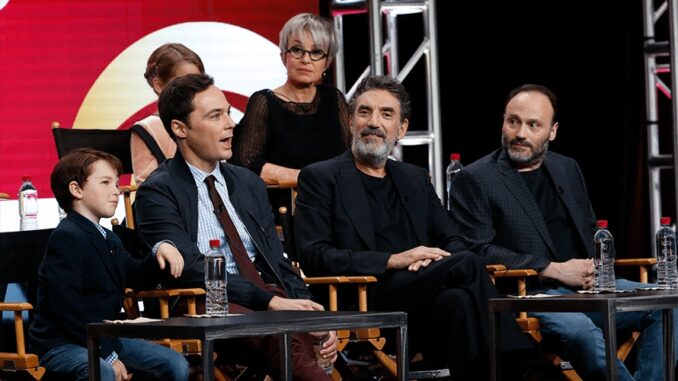
Chuck Lorre brought back one thing in Young Sheldon that The Big Bang Theory chucked out to safe face.
Sheldon Cooper is one of the most iconic characters to come out of the modern sitcom scene. Among the various quirks that the character has, is the ‘bazinga’ idiosyncrasy, which the character uses to denote what is a joke and what is not. However, while being ever present in the first five seasons of the original show, writers on The Big Bang Theory saw it fit to remove it from later seasons.
The showrunners revealed that they had a complicated relationship with ‘bazinga’, which could have caused a lot of trouble for the creatives behind the show, or so they perceived. Given that they believed that there was perhaps some negative association with the word, they decided to retire it by Season 5.
Jessica Radloff’s book gives us a deeper insight into why ‘Bazinga’ might have been fazed out
In her book, The Big Bang Theory: The Definitive, Inside Story of the Epic Hit Series, Jessica Radloff managed to get Steve Holland, the co-producer of the show, on the record about why ‘bazinga’ was retired completely. He said:
We had a complicated relationship with bazinga because it felt like it was becoming a catchphrase in a sort of not-great way, so we retired it almost entirely. After season four or five, we almost never said it, but it was always the thing that was associated with Big Bang. And sometimes in a detrimental way, because people would use it to mock the show sometimes.

While ‘bazinga’ became a thing that the show was mocked with, it would come back a few times, specifically in Seasons 8, 9, and 12, albeit sparingly. However, Young Sheldon, who followed Cooper during his younger years in Texas, managed to bring the catchphrase back.
Young Sheldon managed to give ‘Bazinga’ a backstory
While a lot of things were explained in Young Sheldon, like why Sheldon does the things he does, bazinga did not have any tragic or fun connotation to it. Turns out that it was simply something Sheldon picked up on his own, to facilitate his own communication, distinguishing when he was serious from when he was joking.
Despite the eventual repulsion that The Big Bang Theory had with the catchphrase, Young Sheldon might have brought it back, simply because it was an important part of Sheldon’s character, and deserved to be a part of the show as much as what fans expected it to be.
One of the things fans were especially relieved by was that the show found a very clever workaround that did away with Sheldon’s confession in The Big Bang Theory about why he knocked three times before entering any room.